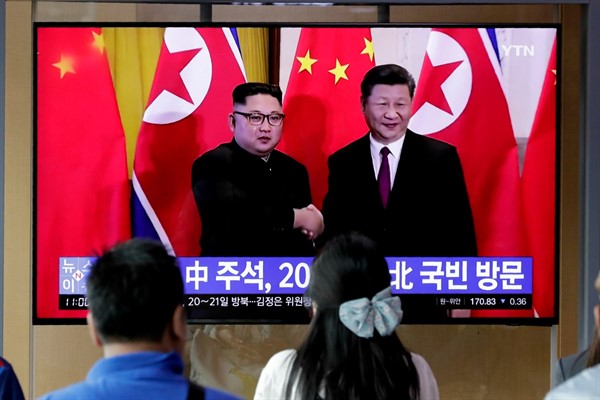North Korean leader Kim Jong Un showed up to cut the ribbon at the opening of a fertilizer factory late last week, thereby quashing rumors that he was dead or perhaps incapacitated as a result of botched heart surgery. Disappearing for weeks at a time, as he did last month, is not unusual for Kim. But his failure to appear on April 15 at ceremonies celebrating the birthday of his grandfather and the country’s founder, Kim Il Sung, triggered a whirlwind of rumors.
Because he is just 36 and his children are all quite young, there was also rampant speculation as to who might follow Kim and what a power vacuum at the top might mean for regional peace and stability. The uncertainty of the past few weeks—and the potential that political instability in North Korea could lead to a strategic miscalculation with disastrous results—underscores why the past four American presidents have made it a priority to eliminate the country’s nuclear weapons and missile capabilities.
Economic sanctions have been the primary tool for inducing Pyongyang to give up its nuclear weapons, but the United States needs cooperation to make them work. Washington has maintained broad sanctions on trade and financial relations ever since the Korean War in the 1950s, so presidents since Bill Clinton have repeatedly turned to the United Nations Security Council to increase the pressure. China, which supported North Korea with troops in the war, is its main trading partner and source of financial aid today. China is also a permanent member of the Security Council, all of which makes its support crucial if sanctions are to be effective. But the final report of the U.N. panel of experts that monitors the North Korea sanctions, which was released last month, documents serious erosion in implementation and enforcement, including by China.

